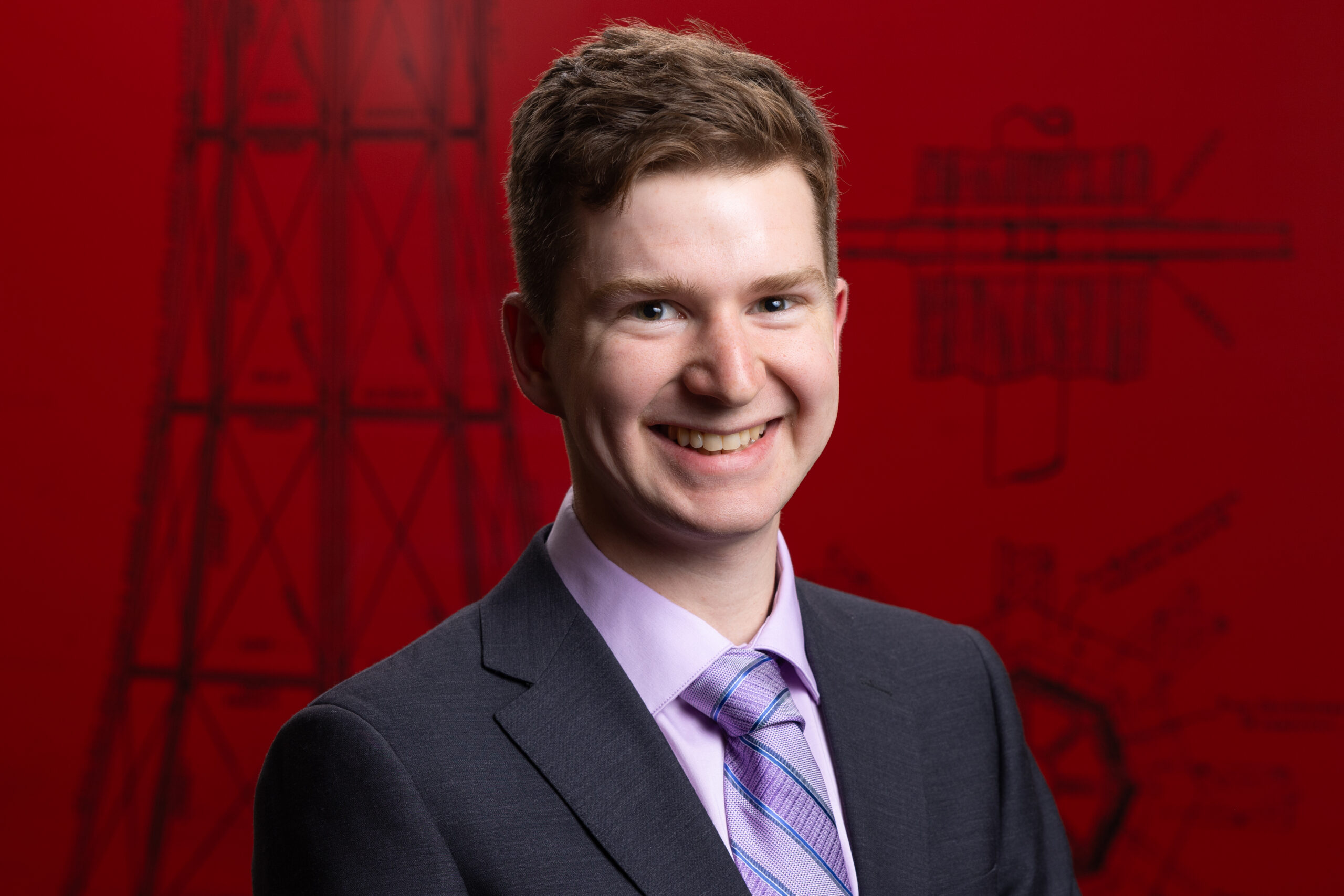Lewis Callaway: Engineering commencement student marshal
Author: Elizabeth Andrews
Author: Elizabeth Andrews
Clear Lake, Iowa.
I was involved in the SE Student Advisory Council, ECpE Student Advisory Council, Master of Business Administration & Specialized Masters Association (MBASMA), and the SALT Company student ministry.
CPR E 230 and 231 are two core classes I took for my cybersecurity minor. The labs for those classes were very realistic, and I remember losing track of time working on the labs because of how interesting they were! Additionally, the skills I learned in those classes were very beneficial in later internships.
SE 309 is known informally as the “internship class” and was another of my favorite classes. We were placed in teams and then built an Android app. Part of what made the class unique was that students entered with a variety of skills, and together we built a tangible app utilizing everyone’s talents. We also learned about technologies like Git and REST APIs that helped prepare us for internships.
I had three internships, and all provided value in different ways. My first internship was at Kingland Systems where I learned about full-stack development and maintaining a code base much larger than any class project.
My cyber security testing internship at RSM provided me with the opportunity to practice “adversarial thinking” as a penetration tester trying to find gaps in company security.
Finally, my cyber security internship at PwC showed me what the intersection of business and technology would look like in a career.
I have also owned my own IT company during college, Callaway Technologies LLC and that has also given me the ability to help and build rapport with a variety of wonderful clients. I have learned many lessons along the way in pitching ideas, improving communication, and ensuring all requirements are met.
Carson Meyer and I have been friends since elementary school, and it was helpful to have him a year ahead of me in software engineering. He gave me advice on which route to take for software engineering classes as well as guidance for being successful in classes and motivation when classes seemed daunting.
I also had a group of software engineering peers who I could count on to help answer questions or be invaluable team members. Timothy Ellis, Elvis Kimara, Zach Wingert, and many others were the ones I could turn to if I was confused in a class or missed something. The biggest piece of advice I give to freshmen is to get to know as many people as possible in your major who can help you out when you are stuck in a specific class and try to reciprocate.
In my freshman year, I had a computer science professor recommend that we check out cross-country skis from State Gym for the upcoming snowstorm. I convinced my friends to rent them out too, and we made the most of a snowstorm and skied around campus. It came full circle as I recently went cross-country skiing again this year at a business case competition in Utah.
I will be moving to Dallas to work full-time for PricewaterhouseCoopers (PwC) as a cybersecurity consultant.
I am hoping to help companies improve their cyber security posture so that customer data is less likely to end up in the wrong hands. Even remediating a small software vulnerability may lead to preventing the next billion-dollar breach.
Iowa State gives engineering students the opportunity to go beyond their engineering degree and grow as a business professional as well. For me, that meant doing a concurrent MBA with the Ivy College of Business. For others, that may mean taking advantage of many of Iowa State’s entrepreneurial resources at the Student Innovation Center. Innovation and entrepreneurship are definitely far-reaching at Iowa State.

